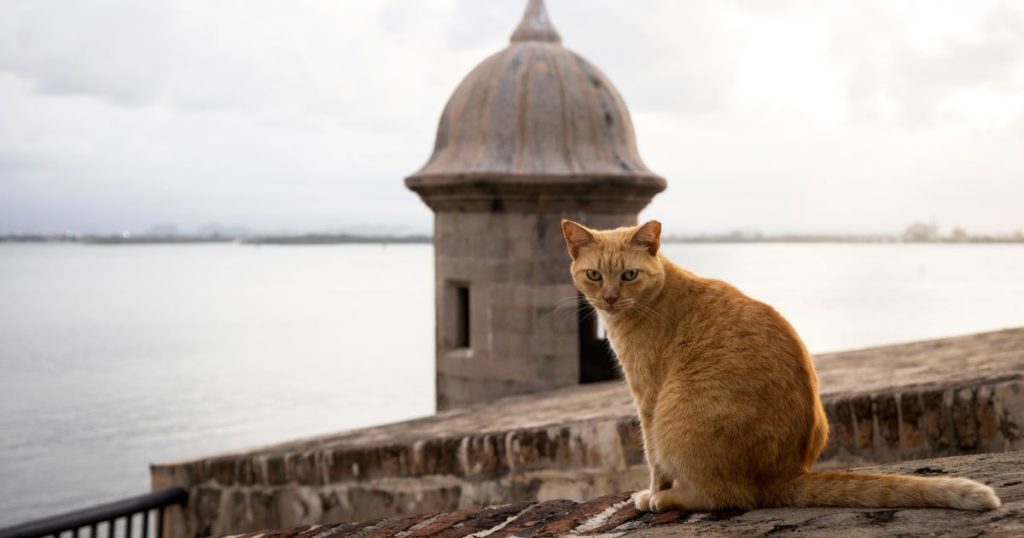A lawsuit was filed by the nonprofit organization Alley Cat Allies against the U.S. National Park Service regarding a plan to remove stray cats from a historic district in Puerto Rico. The federal agency had announced that it would contract an animal welfare organization to remove approximately 200 cats living near a historic seaside fortress in Old San Juan. The organization hired would decide the fate of the trapped cats, including adoption, fostering, sheltering, or other options. The National Park Service stated that if the contracted organization failed to remove the cats within six months, they would hire a removal agency, but it was unclear if an organization had been hired at the time of the lawsuit.
The presence of stray cats in the area has been a point of contention among tourists and locals, with some viewing the cats as a positive aspect of the environment and others considering them a nuisance due to issues such as urine and feces odor. The National Park Service expressed concerns about the overpopulation of cats in the area, leading to the decision to remove them. Activists have criticized the plan, arguing that six months may not be sufficient time to remove such a large number of cats and expressing fears that the cats could be euthanized as a result of the removal efforts.
Alley Cat Allies, in its lawsuit, requested additional environmental statements from the National Park Service and alleged that the agency’s actions violated acts such as the National Environmental Protection Act. The organization sought legal intervention to halt the removal plan and ensure that the cats are treated humanely and given appropriate care. The lawsuit highlighted the importance of considering the welfare and conservation of stray animals in environmental management decisions, emphasizing the need for alternative solutions to address the stray cat population while preserving the historic and cultural heritage of the area.
The legal battle between Alley Cat Allies and the National Park Service underscores the complex issues surrounding wildlife conservation and animal welfare in urban environments. The lawsuit brings attention to the ethical dilemmas faced by authorities in managing stray animal populations while balancing the needs of local communities, tourists, and historical preservation efforts. By challenging the removal plan through legal means, Alley Cat Allies aims to protect the rights and well-being of the stray cats in the affected area, advocating for sustainable and compassionate solutions that consider the interests of all stakeholders involved.
The lawsuit filed by Alley Cat Allies raises broader questions about the responsibilities of government agencies in managing human-animal interactions in historical and natural spaces. Conservation efforts often require difficult decisions when it comes to addressing the impact of non-native species on fragile ecosystems, but humane treatment of animals remains a key consideration in environmental management practices. The legal dispute highlights the importance of transparency and public engagement in decision-making processes related to wildlife management, underscoring the need for collaborative approaches that prioritize animal welfare alongside conservation goals.
As the legal proceedings unfold, the outcome of the lawsuit will likely have lasting implications for the treatment of stray animals in historic districts and other protected areas. The case serves as a reminder of the importance of ethical considerations in wildlife management efforts and the need for inclusive dialogues among stakeholders to find sustainable solutions. By challenging the removal plan and seeking legal recourse, Alley Cat Allies seeks to uphold the rights of stray cats and promote a holistic approach to environmental conservation that considers the welfare of all beings in the ecosystem.


